You’ve probably had your fill of Olympics 2024 content in the past few weeks, and the last thing you want is another article about it. We get it—you’re done. But hear us out. What if this isn’t just another rehash of the games themselves? Instead, it’s a closer look at how Chinese brands leveraged the global stage to boost their visibility—even without being official Olympics partners.
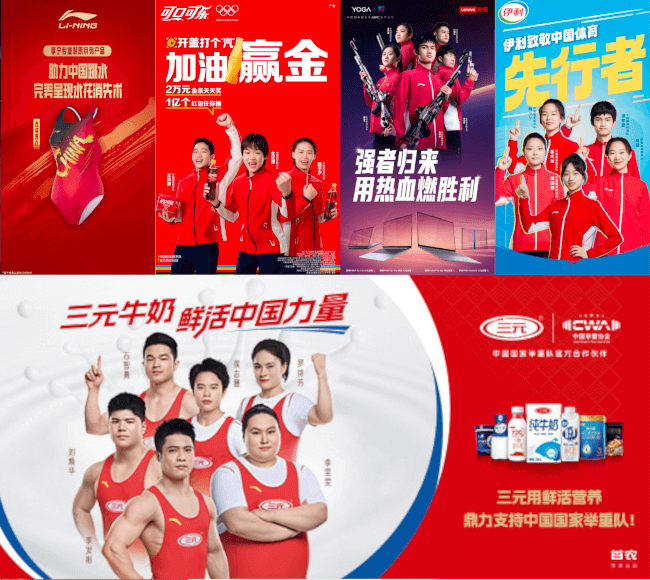
While athletes battled for medals in Paris, an equally intense competition unfolded behind the scenes, where brands vied for global recognition. Chinese brands, in particular, were determined to capture attention and make a lasting impression. But which ones truly succeeded? This article explores the clever strategies these brands used to stand out, from broad advertising campaigns to targeted sponsorships of Chinese athletes. By dissecting their approaches, we aim to uncover how these brands managed to shine, despite not being in the official Olympics spotlight.
The Power of Olympic Sponsorship
Branding Over Sales: Why the Olympics Are More About Visibility Than Direct Sales
The Olympic Games are more than just a testament to human physical limits; they are a monumental platform for brands to shine on a global stage. While most advertising drives direct sales, Olympic sponsorships are about engraving a brand into the public consciousness for the long haul. Here’s a deeper look at why this strategy works:
Global Audience: The Olympics are a rare event that captivates billions of viewers across the globe. This vast exposure allows brands to broadcast their message far and wide, reaching diverse groups across various continents and cultures, thereby creating a widespread and enduring impact.
Association with Excellence: The Olympics are a symbol of the pinnacle of dedication and achievement. Brands linked with the Olympics bask in this reflected glory, enhancing their reputation and fostering trust and admiration among consumers.
Emotional Engagement: There’s something incredibly powerful about the emotional surge people experience as they support their national teams and favorite athletes. Brands seen during these poignant moments enjoy a kind of emotional boost. Consumers tend to remember and think positively about these brands, which are woven into their cherished Olympic memories.
Long-Term Impact: The effects of Olympic sponsorships stretch far beyond the games themselves. The extensive media coverage and unforgettable highlights, like triumphs and medal ceremonies, help keep the brands involved in the public eye long after the closing ceremony.
Brand Differentiation: In a saturated market, it’s essential to stand out. Olympic sponsorship provides a distinctive opportunity for brands to set themselves apart from the competition. An association with such a high-profile event signals a brand’s commitment to excellence and global community, distinguishing them in the marketplace.
Cultural Relevance: The Olympics often shape and reflect cultural trends and discussions. Brands that engage with the Olympics can position themselves as culturally savvy and responsive to the zeitgeist. This connection can boost their appeal to consumers who appreciate brands that are proactive about major global issues.
In essence, Olympic sponsorship is less about immediate sales and more about lifting a brand to a place of higher visibility and connection. The lasting benefits of heightened brand recognition, enhanced reputation, and market differentiation are invaluable for any company aiming to leave a significant mark on the global stage.
Historical Context: The Impact of the Olympics on Chinese Brands
Chinese brands have long recognized the power of the Olympic Games as a springboard for expanding their global footprint and solidifying their brand prestige. Over the past few decades, numerous Chinese companies have seized the Olympic platform to parade their innovations, forge international connections, and bolster their brand prestige. Here’s a closer look at some standout successes:
2008 Beijing Olympics:
- Lenovo: As a major sponsor in 2008, Lenovo seized the spotlight to showcase its technological prowess. With branding visible throughout the event, Lenovo solidified its reputation as a heavyweight in global technology, gaining considerable international exposure and credibility.
- China Mobile: Partnering with the Beijing Olympics allowed China Mobile to showcase its advanced telecommunications capabilities. The company demonstrated its robust network strength, essential for handling the demands of the huge number of visitors and extensive media coverage.
2012 London Olympics:
- Li-Ning: The sportswear brand Li-Ning caught the world’s attention by sponsoring a mix of international athletes and teams, not just those from China. This strategy boosted its visibility in crucial markets overseas, positioning it as a serious contender against established brands like Nike and Adidas.
- Hisense: After sponsoring major events like Euro 2016 and the 2018 FIFA World Cup, Hisense used the London Olympics as a launchpad for its global marketing campaigns, enhancing its profile in the competitive international consumer electronics market.
2016 Rio de Janeiro Olympics:
- Alibaba Group: While Alibaba officially became a worldwide Olympic partner post-Rio, its influence was already noticeable. The company supported the Chinese team and promoted its cloud computing and e-commerce platforms, setting the stage for a more significant involvement in future Olympics.
- Mengniu Dairy: Mengniu Dairy took the opportunity to promote its commitment to health and nutrition. The brand’s Olympic campaigns emphasized the importance of dairy in athletes’ diets, improving its image as a provider of wholesome products.
2020 Tokyo Olympics (held in 2021 due to the pandemic):
- Alibaba Group: In Tokyo, Alibaba’s involvement was even more conspicuous, with its technologies enhancing various aspects of the Games, from cloud services to e-commerce solutions. This partnership highlighted Alibaba’s commitment to innovation and cemented its status as a global tech leader.
- Vivo: The smartphone manufacturer Vivo used the Tokyo Olympics to strengthen its international presence. Sponsoring the Games was a strategic move to boost its brand visibility and credibility in the fiercely competitive global smartphone arena.
These examples underscore how Chinese brands have adeptly used the Olympics not just to boost their visibility but to connect meaningfully with new audiences and showcase their offerings on a world stage. With the 2024 Paris Olympics on the horizon, Chinese brands are poised to build on this legacy of impactful sponsorships and dynamic brand promotion.
Chinese Brands and Their Olympic Strategies
General Advertising: What to Watch for in Paris 2024
The 2024 Summer Olympics in Paris are not just a showcase of athletic prowess but also a battleground for branding brilliance. Chinese brands, along with global competitors, are gearing up to capture attention and engage audiences through a variety of advertising strategies. Here’s what we can expect from the key players confirmed as sponsors:
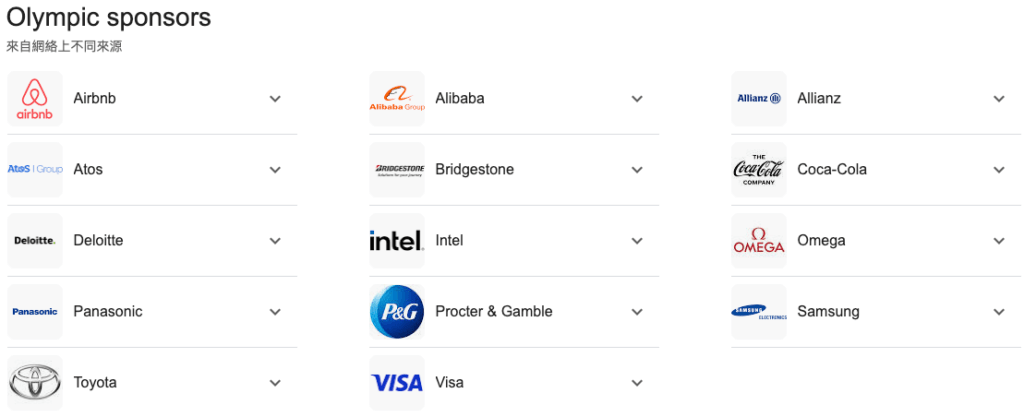
Branded Displays and Billboards:
- Venue Advertising: Key Olympic venues will be adorned with eye-catching branded displays and billboards. Giants like Alibaba and Mengniu are set to dominate high-traffic areas—think stadiums, arenas, and Olympic villages—with vivid visuals and catchy slogans designed to captivate both on-site spectators and global TV audiences.
- Citywide Billboards: Beyond the confines of competition venues, expect to see large billboards across Paris. Placed in strategic spots like major transportation hubs and close to tourist hotspots, these billboards will keep the brands in the public’s sight throughout the Games.
Digital and Interactive Advertising:
- Digital Signage: Alibaba, with its edge in tech, is expected to deploy advanced digital signage with interactive features. Imagine engaging spectators with touchscreen experiences or mobile integrations that offer a hands-on brand interaction.
- Augmented and Virtual Reality: Cutting-edge AR and VR technologies may be employed to deliver unique fan experiences. These could range from virtual tours of Olympic venues to augmented reality games that bring products to life right before your eyes.
Television and Online Streaming:
- Broadcast Advertising: Prime-time TV ads are a key strategy, with brands like Alibaba and Mengniu poised to make their mark during major events. These commercials are set to spotlight not just their products but their alignment with the Olympic spirit.
- Online Streaming Platforms: With more viewers streaming than ever, targeted online ads are expected on popular platforms and social media. These ads will be fine-tuned to reach specific global demographics with precision.
Sponsorship Branding:
- On-Screen Branding: As official sponsors, brands like Alibaba and Mengniu will enjoy prominent logo placements during broadcasts. This includes on-screen graphics and branding at athlete interviews and press events.
- Event Sponsorship: Expect these brands to secure exclusive rights to sponsor particular sports or ceremonies, embedding their logos and messages into every relevant Olympic moment.
Fan Engagement Campaigns:
- Social Media Campaigns: Chinese brands plan to utilize platforms like WeChat and Weibo, along with global social media channels, to launch interactive campaigns. These initiatives aim to build excitement and community among fans through contests and live updates.
- On-Ground Activations: Look out for engaging on-ground activations in Paris, such as pop-up stores and interactive booths. These real-world experiences will allow fans to interact directly with the brands, deepening their connection through firsthand product experiences.
Sponsorship of Teams and Athletes:
- Equipment: Even without official Olympic partnerships, brands can shine by outfitting athletes with their sportswear or accessories. When competitors wear these products, it subtly aligns the brand with athletic excellence, creating powerful visibility and engagement on the global stage.
In essence, the advertising strategies of Chinese brands at the 2024 Olympics will be diverse, blending traditional and digital approaches to maximize both visibility and engagement. With leading companies like Alibaba and Mengniu at the forefront, their innovative tactics are set to shape how Chinese brands utilize the global stage to boost their profiles and connect with audiences across the world.
Key Sports for Chinese Brands
Focus Sports: China’s Areas of Dominance
In the 2024 Summer Olympics, certain sports have caught the eye of Chinese audiences and brands alike, thanks to China’s track record of success and the opportunities these sports provide for brand exposure. Chinese companies are keenly focusing their sponsorship and advertising efforts where they believe they can make the most impact. Here’s a rundown of the sports that are getting the most attention:
Diving (跳水)
- Historical Dominance: China’s divers are perennial favorites, often topping the medal charts with their precision and grace.
- Brand Focus: Companies like Mengniu and Alibaba are visible supporters, showcasing their logos during broadcasts and at medal ceremonies, closely associating with China’s diving elites.
Weightlifting (举重)
- Consistent Excellence: Chinese weightlifters are celebrated for their formidable strength and technique, regularly clinching gold across various categories.
- Brand Engagement: Alibaba makes its presence felt at these events, with branding prominently displayed on gear and around the venues.
Table Tennis (乒乓球)
- Unmatched Legacy: Table tennis is a stronghold for China, with its players frequently sweeping podiums at major competitions.
- Brand Visibility: Brands seize the opportunity to be seen during these high-adrenaline matches, with Alibaba and Mengniu’s logos featured on everything from athlete uniforms to the surrounding areas of play.
Shooting (射击)
- Track Record: Chinese shooters have consistently excelled, especially in pistol and rifle disciplines.
- Brand Support: The presence of Chinese brands is noticeable at shooting ranges and during broadcasts, underscoring their support.
Gymnastics (体操)
- Artistic and Rhythmic Mastery: Chinese gymnasts are known for their spectacular performances in both artistic and rhythmic gymnastics.
- Brand Partnerships: Events are prime real estate for brands like Alibaba, which sponsor athletes and dominate advertising spaces in arenas.
Badminton (羽毛球)
- Global Dominance: As a badminton powerhouse, China has a history of producing champions.
- Brand Strategy: The visibility of brands like Mengniu and Alibaba is significant, with extensive branding on courts and equipment.
Basketball (篮球)
- Widespread Popularity: Basketball has a massive following in China, and the national team’s games are highly anticipated.
- Brand Activities: Major brands are keen sponsors of the national team, actively promoting their products during televised games and in arenas.
Soccer (足球)
- Growing Enthusiasm: Although not as historically successful, soccer commands a vast fan base in China.
- Brand Involvement: High-impact advertising spots are a favorite for brands during soccer matches, leveraging the sport’s wide appeal.
Track and Field (田径)
- Rising Stars: Track and field is gaining traction, with Chinese athletes making strides in sprints, hurdles, and distance events.
- Brand Presence: Sponsorships are robust, with brand logos prominently displayed at events, highlighting their support for emerging athletic talents.
By aligning their marketing strategies with sports where China traditionally excels, brands like Alibaba and Mengniu are not just betting on visibility. They are intertwining their identities with the national pride and emotional highs of Olympic success. Through thoughtful sponsorships and targeted campaigns, these brands aim to not only boost their profiles at home but also cast a lasting impression on the global stage.
2024 Case Studies
Table Tennis
Fan Zhendong’s Victory and Brand Endorsements
So, on August 4th, Fan Zhendong did it—he took the gold in the men’s singles final at the Paris Olympics, beating Sweden’s Moregaard. It wasn’t just a win; it was a huge deal for Chinese table tennis, marking five consecutive Olympic championships in men’s singles. And, of course, his sponsors were right there, ready to ride the wave of his success.
Yili: A Case of Premature Celebration
One sponsor, Yili, kind of jumped the gun. On August 3rd—yep, before the final even happened—they started running ads in Beijing and Shanghai celebrating Fan’s “victory.” Not surprisingly, people weren’t too happy about this, and Yili had to issue a pretty public apology. They claimed it was just a technical test for the ad, but the damage was done. It’s a reminder that in marketing, timing really is everything—celebrating too early can backfire big time.
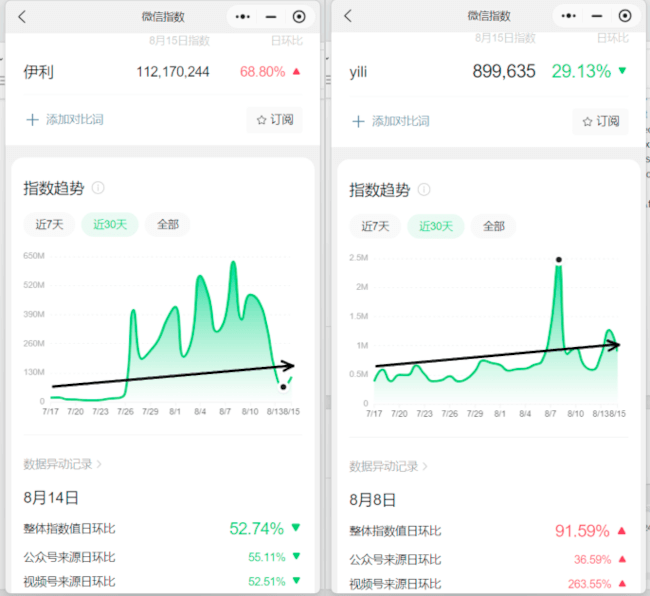
Anta: A Missed Opportunity
Then there’s Anta. With all the buzz around Fan’s matches—especially his big one against Zhang Benzhihe, which pulled in billions of views on social media—you’d think they’d be all over it. But nope, on August 1st, when the hype was at its peak, Anta’s main Weibo account was talking about something else entirely. They missed the chance to ride that wave, which just goes to show, even big brands can miss the mark if they’re not quick enough on their feet.
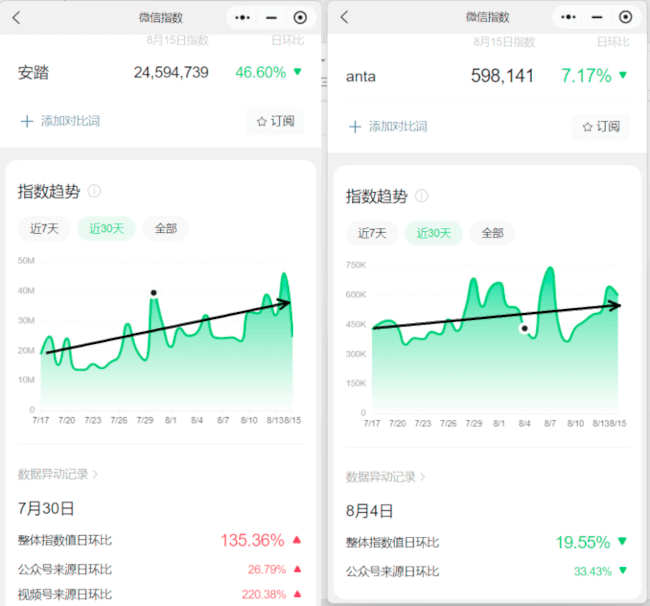
RIMOWA: A Smart Post-Olympics Move
Finally, RIMOWA played it smart. On August 14th, they announced Fan as their latest spokesperson. This partnership wasn’t just about sports—it was about blending athletic excellence with a high-end lifestyle. It’s a great example of how brands can still score big even after the games are over, by aligning themselves with champions in a way that goes beyond the sport itself.
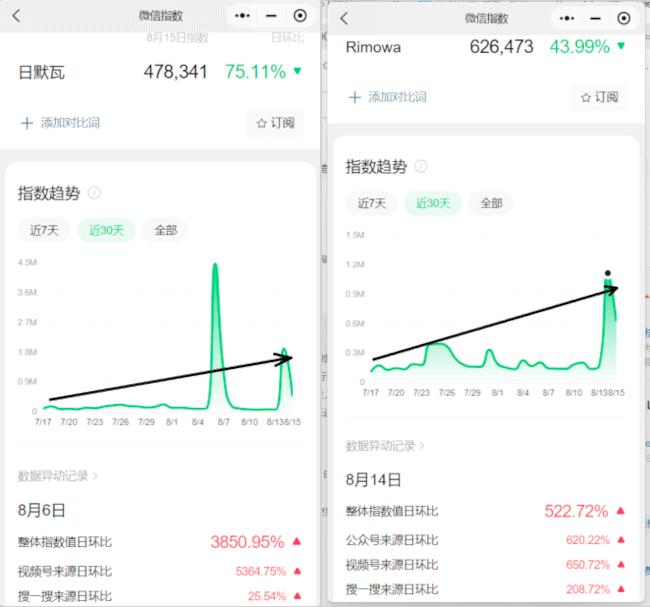
Shooting
The Chinese Shooting Team truly hit the mark at the 2024 Olympics, achieving their best performance yet with a haul of 5 gold, 2 silver, and 3 bronze medals. Their success wasn’t just a win for the athletes—it also shined a spotlight on the brands backing them.
Li-Ning: Outfitting Champions
Li-Ning provided sportswear for the Chinese Shooting Team, and they couldn’t have picked a better team to back. The Chinese shooters totally dominated, bringing home 5 golds, 2 silvers, and 3 bronzes—their best Olympic performance ever. Huang Yuting and Sheng Lihao, who won the first gold medal of the Paris Olympics, became instant sensations. Their calm demeanor and cute Weibo nicknames won the internet’s heart, which, of course, gave Li-Ning a nice little boost.
Lenovo YOGA: Celebrating Milestones Together
But Li-Ning wasn’t the only one. Lenovo YOGA, celebrating its 40th anniversary, also teamed up with the Chinese National Shooting Team. It was a smart move, tying their brand to the team’s historic success, just as they both hit that 40-year milestone. Pretty neat, right?
Diving
The Chinese National Diving Team made a clean sweep, winning all eight gold medals available at the Paris Olympics. This dominance not only thrilled fans but also gave a big boost to the brands that partnered with the team.
Coca-Cola: Refreshing the Olympic Spirit
The Chinese National Diving Team? They swept all eight golds—yep, you read that right, all eight. Coca-Cola, one of the official sponsors, really got to enjoy this one. Using star divers like Quan Hongchan and Chen Yuxi in their campaigns, they capitalized big time on the team’s success. Quan Hongchan’s popularity just keeps skyrocketing, and Coca-Cola’s brand image rose right along with it.
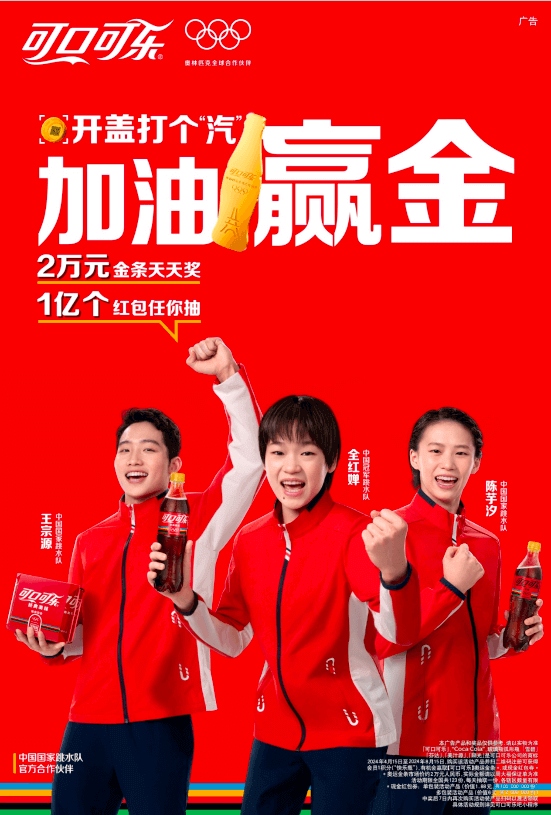
Yili: Fueling Victory with Dairy Power
Then there’s Yili, the official dairy partner of the Chinese Sports Delegation and the Diving Team. They made sure to get in on the action, too, and the association with such a successful team surely did wonders for their visibility.
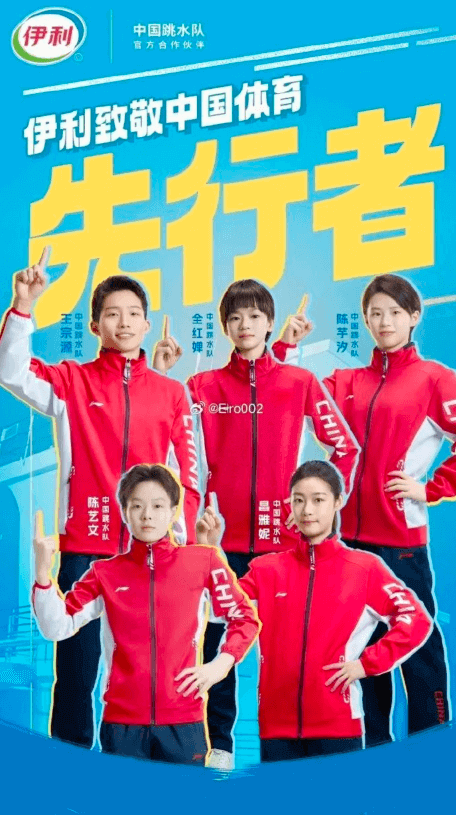
Li-Ning: Dive into Success
Li-Ning continued their strong presence in Olympic sports by outfitting the diving team, further associating their brand with top-tier athletic achievement.
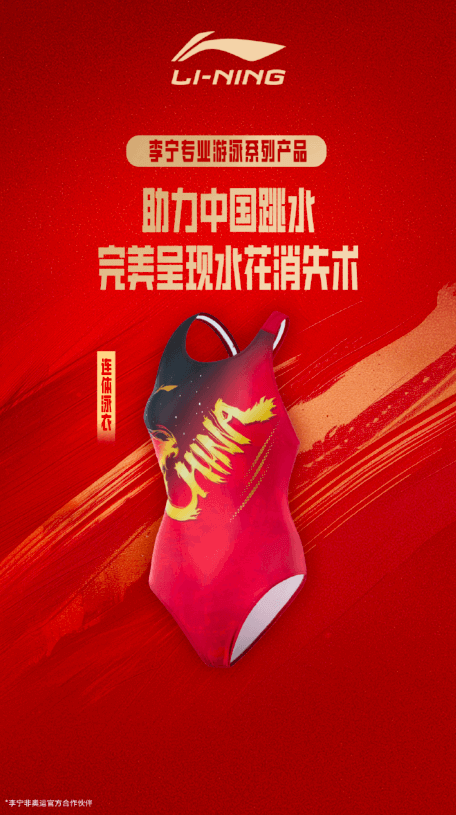
Nongfu Spring: Keeping the Team Hydrated
Nongfu Spring, the team’s long-time hydration partner, had a lot to celebrate as their commitment paid off with the divers’ stellar performance.
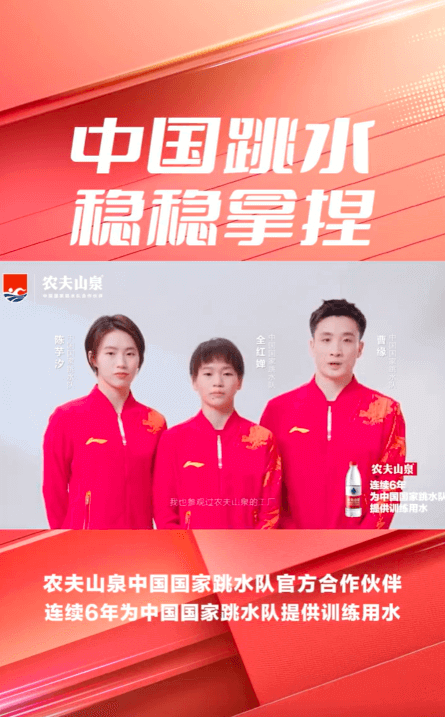
Blue Moon: A Splash of Success on Weibo
Blue Moon took to Weibo to celebrate the diving team’s victories, keeping the conversation flowing on social media.
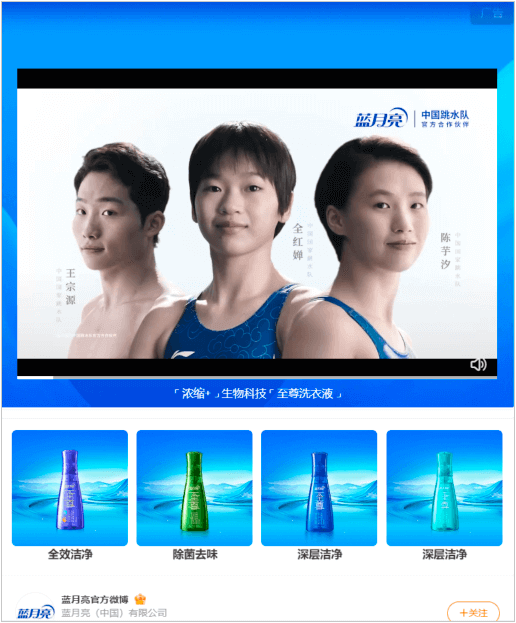
CHANDO: Blending Beauty with Athleticism
CHANDO’s campaign, featuring Quan Hongchan, perfectly married their brand with the youthful energy and success of the Chinese divers.
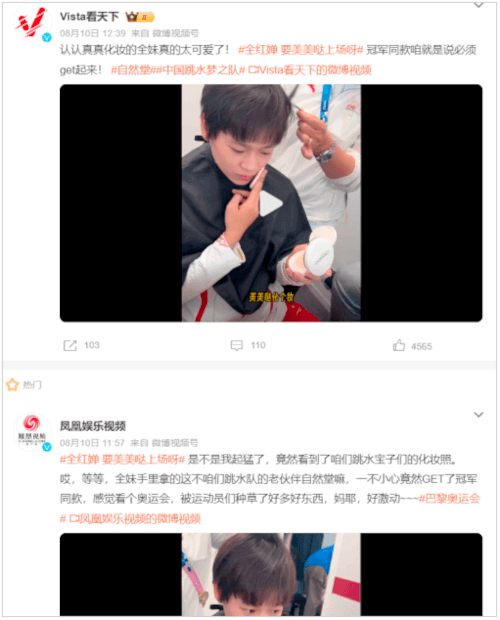
Weightlifting

The Chinese Weightlifting Team dominated at the Paris Olympics, with five out of six athletes winning gold. This powerhouse performance provided a strong platform for their sponsors to shine.
ANTA: Lifting the Brand to New Heights
ANTA’s been doing this for a while—they’re the official partner of the Chinese Olympic Delegation, so every time a Chinese athlete steps on the podium, they’re wearing ANTA gear. But it was in weightlifting where they really shone this year. Five out of six weightlifters won gold, and in a touching moment, all five hung their medals around the neck of Shi Zhiyong, the only team member who didn’t win. Talk about a moment made for marketing!
Sanyuan: Strength in Partnership
Sanyuan, who became the official partner of the Chinese Weightlifting Team in June, must’ve been pretty happy with their choice too. The team’s success definitely added some shine to their brand.
Fangchengbao: Driving Success with a New Partnership
Fangchengbao, a new energy vehicle brand, made a smart move by aligning with the Chinese Weightlifting Team, gaining visibility through the team’s impressive Olympic showing.
HELI: Powering Up with Weightlifting
HELI, the top brand in China’s forklift market, lifted their profile by partnering with the weightlifting team, tying their brand to the athletes’ powerful performances
Consumer Psychology
Victory and Brand Association: Understanding the Connection
The link between athletic victories and brand sponsorship is deeply ingrained in consumer psychology. At high-profile competitions like the Olympics or Euro 2024, when athletes triumph, the brands that back them often see a corresponding rise in public perception. Let’s break down why this happens:
Emotional Connection: Sporting events stir intense emotions. Watching a favorite athlete or team win can bring joy, pride, and a surge of national pride. Brands connected to these winning moments benefit from an emotional boost, as they become subconsciously linked to these positive feelings, enhancing their public image.
Halo Effect: Successful athletes embody qualities like excellence and dedication. These positive attributes can transfer to the sponsoring brands, improving their reputation and making them more attractive in the eyes of consumers.
Trust and Credibility: Brands that sponsor high-performing athletes or teams are often seen as more credible and reliable. This perception that a brand is “champion-worthy” can boost consumer trust and loyalty.
Memorability: Victorious moments are unforgettable, and so are the brands associated with them. Increased brand visibility during significant events helps reinforce brand recall, making it more likely for consumers to think of these brands when making purchases.
Patriotism and National Pride: Victories on the international stage can ignite strong feelings of national pride. Brands supporting national heroes are often viewed as patriotic, deepening consumer affinity.
The Impact of Visibility During Key Moments
The importance of brand visibility during critical moments like medal ceremonies and press conferences cannot be overstated. Here’s why these occasions are crucial for maximizing brand impact:
High Viewership: These events draw massive global audiences, both live and through subsequent media coverage. Brands gain extensive exposure as these moments are broadcasted and often replayed.
Peak Emotional Engagement: The emotional intensity of medal ceremonies, where athletes receive their medals, offers a unique opportunity for brands. Being visible during these emotionally charged moments can enhance brand impact significantly.
Media Coverage: Extensive media coverage of these events means photos, videos, and articles will circulate widely, embedding the brand’s presence in public consciousness.
Athlete Endorsements: Athletes frequently acknowledge their sponsors during press conferences. These direct endorsements from respected figures can significantly elevate a brand’s stature.
Brand Integration: Strategic placement of logos and messages during high-visibility moments ensures that the brand becomes part of the event’s narrative. This can include logos on uniforms, backdrop banners, or even on the podium itself.
Beyond the Olympics: Expanding the Horizon
This psychological impact isn’t limited to the Olympics. It extends to other major international sports events like Euro 2024. Chinese brands such as BYD, AliExpress, Alipay+, and vivo have tapped into these opportunities to boost global recognition. As highlighted in Mark J. Greeven’s analysis on IMD.org, these sponsorships allow Chinese brands to reach new audiences and cement their image as global contenders.
However, achieving success in this arena demands ongoing investment and strategic partnerships with sports organizations. Chinese brands must continuously invest in sponsorships and carefully manage their global image to shift from regional favorites to global icons. This long-term commitment is crucial for garnering respect and loyalty on the world stage, which ultimately translates into increased revenue and growth.
In summary, understanding the psychological underpinnings of brand associations with athletic victories and leveraging visibility during pivotal moments are key to effective sports sponsorship. By aligning with successful athletes and ensuring prominent visibility at critical times, brands like Alibaba and Mengniu are poised to enhance their image, improve brand recall, and build lasting consumer loyalty, making their investments in international sports highly beneficial.
The Battle of Brands
Competition Beyond Sports
The Olympics are not just a showcase for the world’s finest athletes; they’re also an intense arena for brands competing for global attention. The 2024 Summer Olympics in Paris offers a unique platform for brands to shine and emerge as leaders in marketing prowess. Notably, Chinese brands such as Alibaba and Mengniu stand out for their strategic efforts to captivate a worldwide audience. The real contest here is about capturing attention and making a memorable impact on a global scale.
So, which brand will rise as the top marketing champion of the Olympics? This competition stretches far beyond the athletic events, delving deep into the dynamics of brand perception, media presence, and consumer engagement. The brand that most effectively uses its Olympic sponsorship to boost its global image, engage with audiences, and leave a lasting impression will likely take the crown.
Metrics for Success
Identifying the “winner” of the Olympic brand competition involves measuring various aspects of brand visibility and consumer engagement:
- Social Media Performance: Keeping an eye on how often brands are mentioned across platforms like Twitter, Facebook, Instagram, Weibo, and TikTok will reveal which are capturing attention. High engagement levels typically translate to increased visibility and interaction.
- Media Exposure: The extent and nature of media coverage are also telling. Brands that frequently appear in news segments, articles, and online with positive coverage are likely establishing a stronger presence.
- Brand Recall Surveys: Surveys conducted before and after the Olympics can help gauge any shifts in brand awareness and recall. A notable increase post-Games suggests effective branding efforts.
- Engagement Metrics: Engagement on official Olympic channels, including views, likes, comments, and shares on branded content, provides insights into how well a brand is resonating with audiences.
- Sponsorship Activation: The impact of specific sponsorship activations—such as on-site promotions, digital campaigns, and event-specific marketing—can significantly influence consumer interest and interaction.
- Sales Impact: Although secondary to visibility, an uptick in sales during or after the Olympics can signal effective brand association with the event.
- Sentiment Analysis: Modern tools that analyze sentiments expressed in social media posts, reviews, and comments can help brands understand public perception during the Olympics. Positive sentiment is key to building long-term loyalty and a strong brand reputation.
The brand battle at the Olympics transcends mere visibility; it’s about forging deep and lasting connections with audiences worldwide. By employing these metrics, brands like Alibaba and Mengniu can evaluate their performance and fine-tune their strategies for future global showcases. The ultimate aim for these companies is not just to succeed locally but to be celebrated as global titans in their respective industries.
In this article, we’ve delved into the strategic use of Olympic sponsorships by Chinese brands, showcasing how they capitalize on these global stages to boost their visibility. We revisited the triumphs of Chinese brands at past Olympics and unpacked their tailored advertising strategies for the upcoming 2024 Summer Olympics in Paris. We spotlighted the sports where Chinese athletes traditionally excel, unraveling the psychology behind brand associations with these athletic victories. Moreover, we introduced the concept of the “Olympic brand competition,” proposing various metrics to crown the unofficial marketing champion.
While our focus has been predominantly on the Olympic Games, the strategies discussed here are applicable to any high-profile event that captures the attention of Chinese audiences, whether they’re local galas, national celebrations, or international spectacles, and not just confined to sports. Western businesses looking to penetrate or expand within the Chinese market can draw valuable lessons from these major Chinese brands. By leveraging large-scale events for heightened visibility, emotional resonance, and strategic partnerships, similar principles can be adapted to suit smaller-scale initiatives.
As you navigate the Chinese business landscape, keep a close eye on major events and the branding strategies employed. Consider how these tactics might be tailored to fit your business model and objectives. We encourage you to share your thoughts and engage in discussions on how these approaches could facilitate your entry and growth in the Chinese market. Let’s explore together how strategic visibility and emotional connection can be harnessed to craft a compelling brand narrative that resonates with Chinese consumers.
